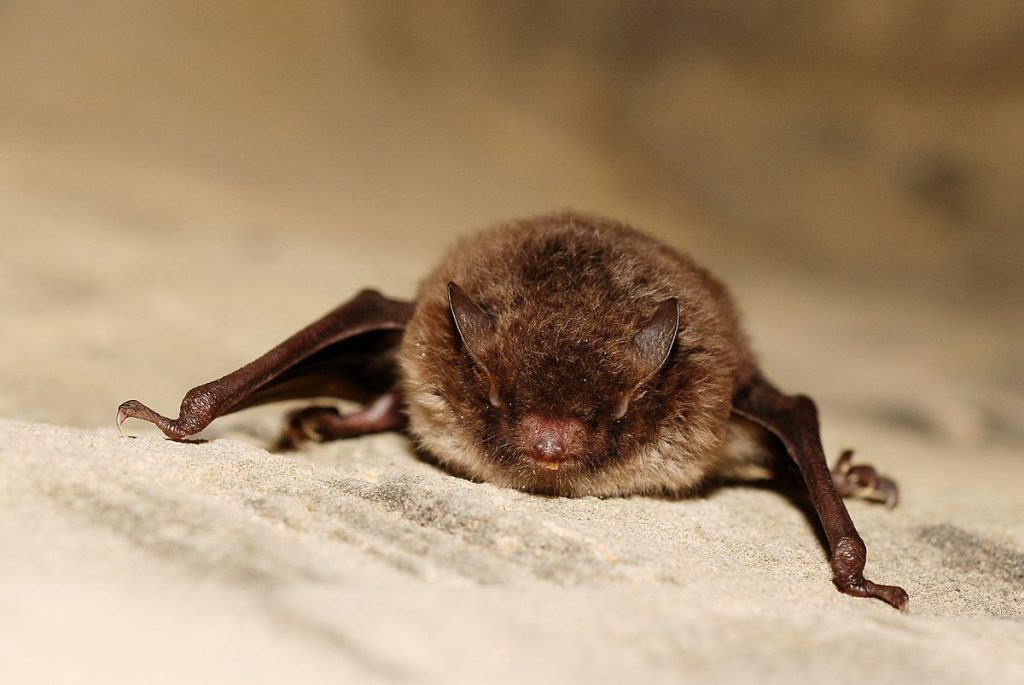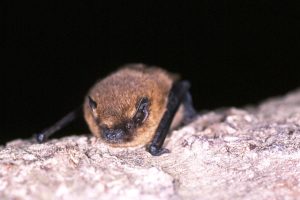
An international celebration is set to take place this week to raise awareness for the need of bat conservation.
The Bat Appreciation Week is set to take place from the October 24 and will fly through until Halloween (31 October).
The spooky festivities of Halloween have often ruined the name of the nocturnal creature, with many associations being made to both vampires and Halloween.
This bad attention has often led to their reputation being damaged.
However, these night time creatures are familiar to the Salford area, often being found to roost in Peel Park and the Meadows; with Pipistrelles and Daubentons bats being seen the most.
And as autumn makes its yearly transition into winter, the bats are on the lookout for a cosy place to hibernate.
Many roost in trees, but they will also make use of any nooks or gaps in buildings they can find.
However, this can often prove difficult for the creatures, as the Salford Rangers Team were happy to inform.
Joseph Palframan, from the Salford Ranger Team, said: “Bats are not flying rodents. Bats are a separate order and are more closely related to whales than mice.
“Some people are afraid of bats with their swooping fast flight.
“Lots of bats have a sophisticated echolocation so they can avoid objects & they will nearly always avoid humans. They may come close, but they are after tiny insects, not hunting us down.”
And as the spooky season approaches, Joseph continued: “Bats have an association with Halloween partly as they mostly come out when it is getting dark or is dark.
“There is also thought to be an association with Scottish & Irish immigrants to America a few hundred years ago. They celebrated the end of harvest on the 31st October with the Samhain festival which involved fires & food.
“This attracted a lot of bugs & other insects which in turn attracted the bats, at this time of year, many bats were swarming as well after migrating.”

He continued: “Bats may also be associated with vampires and witches.
“Although it is true Vampire Bats exist, which do feed on blood, there are only three species out of the 1485 species of bats and they are found in South and Central America.”
However, with fear and misconceptions we often neglect how important bats are, as they really useful in reducing pests.
And all British bats are insectivores and can consume a few thousand insects a night.
The bat is one of the oldest living mammals, with a lineage that stretches back to more than 50 million years, as a spokesperson from the Salford Ranger Team added: “In other parts of the world bat species which feed on fruit, pollen and nectar can be important for reforestation and also help with the pollination of many plants we consume.
“Bats are also indicator species which can give us a guide to the health of an ecosystem.”
And this health shared in the Salford ecosystem, can be found and celebrated with Peel Park bats, as they continued: “We see a variety of bat species around both these areas on a regular basis and often quite early on in the evening this would indicate they roost close by.
“Bats often have a number of roosting sites which may change throughout the year.”
The mature trees provide roosting sites for them and the woodland and river provide them with flying insects.
Around sunset the bats may come out and feed all night from March to October, so there’s still a chance to see them, especially as the weather has been mild.
Bat noises caught on the bat detector during a Salford Bat Walk. – Video Credit: Hayley Crawshaw
However, as the winter month close in the nocturnal animal will look to roost in peoples home for warmth and security.
And although that may be considered a pest problem, they typically are known not to cause issue as they do not bring nesting material like birds.
Despite this the thought of a bat may be of a concern for many people, however, the animals are protected by the law.
And if you are known to have a bat issue, members of the public have been encouraged to call the National Bat Helpline.
However, with this week’s celebration of bats local residents are encouraged to avoid disturbing them during the winter months.
Locals are encouraged to install bat boxes that encourage the creatures to hibernate safely and without disruption.
This is important information as it is illegal to disturb hibernating bats, even if they’ve moved into your house.
As the Salford Ranger team added: “In most parts of the country there is a network of volunteers who can assist, we have the South Lancashire Bat Group which has a helpline and useful online advice as does the BTC website.
“In general it is always advised not to handle the bat, partly as a license is required but also because a tiny percentage of bats may carry a type of rabies virus. They are also quite fragile.”
However, despite the concerns for the bats, the Salford Rangers have carried out over 20 bat walks this year, running from April to Mid October.
Hayley Crawshaw, Batwalk enthusiast said: “I love learning to appreciate what we have on our doorstep. In today’s life where everything is so fast paced we often look “down” a lot of the time.
“Learning to look up and appreciate the wildlife and our local park spaces is just immensely beneficial.
“The park ranger, Joe Palframan, is always so enthusiastic and extremely engaging.”
After October, bat numbers can be unpredictable as temperatures drop, going into torpor and then hibernation.
The exciting time opportunity to spot the bats, the Rangers spoke ahead of there reappearance, as they said: “We look forward to next spring when we can start them up again.”
If you are concerned about a bat issue- call the National Bat Helpline. 0345 1300 228















3 Comments